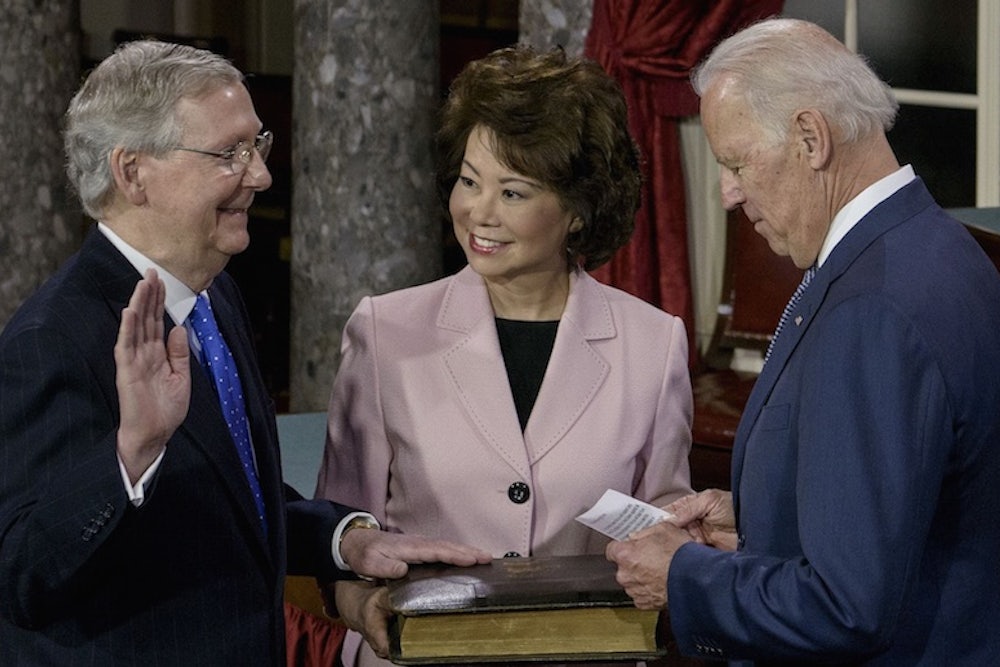Hindsight bedevils all politicians, but I feel strongly that if Republicans had just leveled with Americans and told us that the election of a GOP Congress would usher the country into a futuristic era of time travel, they might’ve reclaimed the Senate before 2014.
Alas.
“After so many years of sluggish growth, we’re finally starting to see some economic data that can provide a glimmer of hope," Senate Majority Leader Mitch McConnell acknowledged in floor remarks Tuesday morning. "The uptick appears to coincide with the biggest political change of the Obama Administration’s long tenure in Washington: the expectation of a new Republican Congress.”
Parse McConnell carefully, and he’s actually selling Republicans a little short. The uptick doesn’t just “appear” to coincide with the expectation of a new Republican Congress. It absolutely does coincide with the expectation of a new Republican Congress. Relatedly, things that coincide are called “coincidences.”
Clearly McConnell is laying claim for the GOP to at least partial credit for the recent surge in economic growth. That’s a difficult undertaking, largely because the most eye-popping data point—5 percent annualized GDP growth—came between the months of July and September, 2014.
Democrats have been burned multiple times over the past several years by heralding glimmers of positive economic news, only to have the recovery resume its slow, steady pace. They’ve grown understandably reluctant to claim credit for booms, knowing they may never materialize. That’s starting to change now that the upsides are so promising. President Obama is currently traveling the country touting the good economic news.
But they should get over it altogether. In the end, political spin along these lines isn’t going to have much of an effect on the way the public doles out credit for a healthy economy, and, as a corollary, nobody will pay a big political price for touting illusory growth. At a press conference in 2012, Obama casually asserted that the private sector was “doing fine,” despite what amounted to tepid growth. His comment invited sustained partisan pushback and then he won re-election handily. Back in January 2011—less than a month after Republicans claimed control of the House—the Commerce Department reported 3.2 percent GDP growth in the last three months of 2010, and then-Majority Leader Eric Cantor rushed out a statement screaming “THERE ARE THE JOBS.” When the growth slowed, it went back to being Obama’s fault.
Which is all to say that spin games like these aren’t nearly as important to the political consequences of economic growth as the actual benefits people feel in their lives. And to the extent that they attribute those to politicians at all, they generally attribute them to the party that holds the White House. But there’s no reason for Democrats to cede a sliver of the political dividends to the GOP by sitting back and letting them talk reporters into reading tremendous significance into what McConnell slyly admitted is a pure coincidence.
